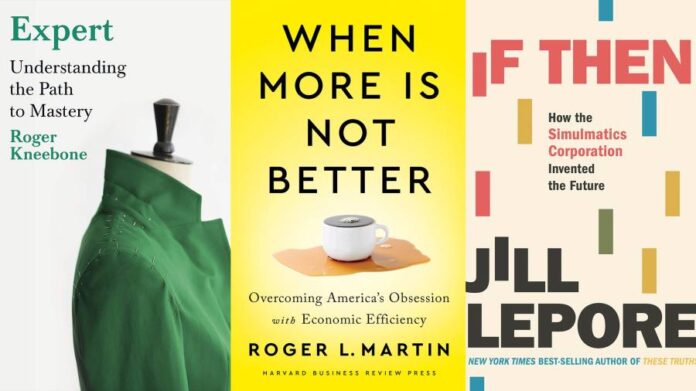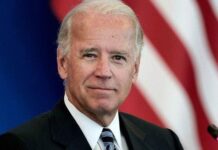The Long Win: The Search for a Better Way to Succeed, by Cath Bishop, Practical Inspiration Publishing, RRP£12.99, 274 pages
Former diplomat and Olympic oarswoman Bishop argues, from her own and others’ experience, that a zero-sum approach to winning can be counter-productive. Instead, by being clearer about what matters, and concentrating on personal growth and collaboration, it is possible to achieve a more fulfilling, longer-lasting success.
Grow the Pie: How Great Companies Deliver Both Purpose and Profit, by Alex Edmans, Cambridge University Press, RRP£18.99, 382 pages
The quest to encourage companies to adopt positive values, for the benefit of all stakeholders, sometimes seems long on vision and short on firepower. Edmans, a finance professor, provides plenty of ammunition to support the idea that visionary leaders can expand the whole “pie” in pursuit of purpose and profit.
When More is Not Better: Overcoming America’s Obsession with Economic Efficiency, by Roger Martin, Harvard Business Review Press, RRP$30, 256 pages
Martin demonstrates how businesspeople, politicians and economists have treated the economy as a “perfectible machine” rather than a “complex adaptive system”. This has, over time, encouraged monopolies, monocultures and self-perpetuating wealth, and sapped resilience from the US system, with consequences all too obvious during the pandemic.
Reimagining Capitalism: How Business Can Save the World, by Rebecca Henderson, Portfolio Penguin, RRP£20/Public Affairs, RRP$28, 336 pages
Unlike many books on the future of capitalism, this one allows that business should be an indispensable part of any solution to emergencies such as climate change. Henderson shows co-operation between companies, government and communities has historically yielded the best outcomes. Shortlisted for the Financial Times and McKinsey Business Book of the Year Award.
Expert: Understanding the Path to Mastery, by Roger Kneebone, Viking, RRP£16.99, 352 pages
The path to expertise — from apprentice, via “journeyman”, to master — is a long one, former surgeon Kneebone points out. This fascinating corrective to the dangerous emergence of “instant experts” draws on examples of the hard graft of real experts, from tailors to stonemasons.
No Rules Rules: Netflix and the Culture of Reinvention, by Reed Hastings and Erin Meyer, WH Allen, RRP£20/Penguin Random House, RRP$28, 320 pages
Hastings, founder of Netflix, and Meyer, an academic specialising in analysis of different cultures, dissect the streaming media company’s famous radical way of working. Their book, a finalist for the FT book award, does not gloss over the difficulties of applying the cultural prescription that Netflix made famous.
Uncharted: How to Map the Future Together, by Margaret Heffernan, Simon & Schuster, RRP£20, 368 pages
In a year when rigid planning and unfeasibly precise predictions have been exposed as worse than useless, Heffernan’s prescient book shows how to be prepared, adaptable and resilient in the face of inevitable crises and uncertainty around the corner.
Tell us what you think
What are your favourites from this list — and what books have we missed? Tell us in the comments below
No Filter: The Inside Story of How Instagram Transformed Business, Celebrity and Our Culture, by Sarah Frier, Simon & Schuster, RRP$28/Random House Business, RRP£20, 352 pages
Another finalist for the FT book award, this deep dive into Facebook’s 2012 purchase of Instagram provides a vivid portrait of clashing Silicon Valley egos — Mark Zuckerberg and the photo-sharing service’s co-founder Kevin Systrom, respectively. It is also a cautionary tale about the difficulties of integrating different corporate cultures.
If Then: How the Simulmatics Corporation Invented the Future, by Jill Lepore, Liveright, RRP$28.95, 432 pages
A wonderfully written history of long-forgotten computer group Simulmatics, which in the 1950s and 1960s pioneered the data analytics tools that underpin the social media platforms and forensic political campaigning of the 21st century. Lepore draws out the lessons — and warnings — from the Simulmatics story. Shortlisted for the FT book award.
A World Without Work: Technology, Automation and How We Should Respond, by Daniel Susskind, Allen Lane, RRP£20, 336 pages
The premise of Susskind’s book, another FT book award finalist, is bleak — machines will eventually put more of us out of work than tech-optimists suggest. But he offers prescriptions to avoid the worst outcomes of inequality, unhappiness, unrest: rein in Big Tech and regenerate the state to help citizens rediscover meaning in what they do.
Andrew Hill is the FT’s management editor
Join our online book group on Facebook at FT Books Café
Listen to our podcast, Culture Call, where FT editors and special guests discuss life and art in the time of coronavirus. Subscribe on Apple, Spotify, or wherever you listen



















